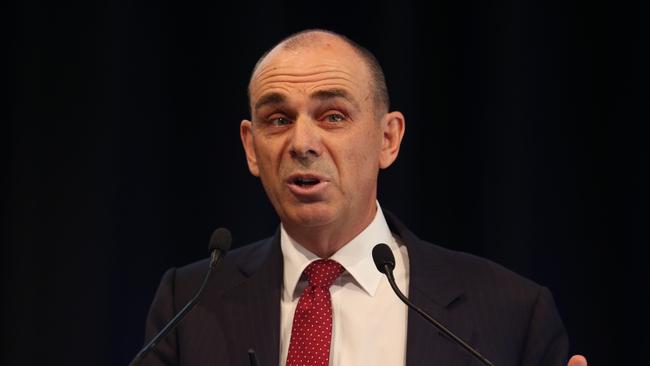APRA rebuffs royal commission criticism as ASIC blasts corporate Australia for “deficit of trust”
APRA has defended its failure to ever take a bank, insurance company or super fund to court as “broadly appropriate”.

The prudential regulator has defended its failure to ever take a bank, insurance company or super fund to court as “broadly appropriate”, but says it is reviewing its practices with a view to taking more enforcement action.
Responding to the financial services royal commission interim report, the Australian Prudential Regulation Authority said that by early next year it will have finished a “formal review of its appetite and processes for using enforcement action to achieve its prudential objectives”.
The review is examining whether APRA should widen its view of what it kinds of issues over which it takes public action from its current relatively narrow concentration on things that threaten financial stability and whether it “should take more enforcement action to hold individuals to account” and deter wrongdoing.
In his interim report, released in late September, royal commissioner Kenneth Hayne slammed APRA and its sister agency the Australian Securities and Investments Commission for rarely taking wrongdoers to court — never, in APRA’s case — and asked whether the regulators needed to beef up enforcement in light of the misconduct revealed during his hearings.
APRA said it would need more funding and legal changes to adopt a more aggressive approach.
“APRA accepts that it has traditionally examined cases of poor conduct through a prudential risk lens, and has primarily relied on ASIC to ensure that specific cases of misconduct and consumer harm were properly remediated,” the regulator told Mr Hayne in its submission.
“Conduct has been viewed as an indicator of risk, but not a direct prudential risk in and of itself unless it was likely to jeopardise the stability of the system or an individual institution.”
However, it said its approach has “evolved” in recent years, pointing to its work on improving mortgage lending standards.
“APRA has taken a proactive role in resolving other systemic conduct issues, including working closely with ASIC on issues that have arisen in the handling of life insurance claims at particular entities,” it said.
“This has resulted in APRA collecting and publishing detailed information on performance of the life insurance industry with respect to claims and disputes.
It said the commission’s hearings “demonstrated how poor culture together with weak governance within organisations can allow incentives for misconduct to persist undetected within an organisation’s business operations”.
“APRA agrees that culture is a key driver of an institution’s operations but notes that regulatory oversight of culture is a relatively new and developing field.
“Clearly this is an area where more work is required; APRA’s current focus in this area is on accountability and remuneration.”
APRA also warned against Mr Hayne’s idea that complex laws could be simplified — which has been seized upon by the Coalition government — as a potential cure for industry bad behaviour.
It said the current “twin peaks” model, where ASIC focuses on consumer protection and APRA on “safety and soundness”, should be maintained.
“The regulatory architecture which emanates from this structure may at times be complex, but given the nature of the financial services sector, some degree of complexity is inevitable,” it said.
“There are trade-offs between simplicity, on the one hand, and clarity and enforceability, on the other.”
Meanwhile, ASIC chairman James Shipton used the release of the corporate regulator’s annual report today to promise “help and support” for the royal commission and its “important work”, as well as blasting corporate Australia for its “deficit of trust”.
Mr Shipton, who took over from Greg Medcraft in February, did not refer to Mr Hayne’s criticism of ASIC but said the royal commission “has also been highlighting the misconduct that ASIC has been investigating and acting on for some time”.
“The royal commission has shone a bright light on the consequences of financial services misconduct and of failing to abide by the standards of behaviour required by the community as a whole,” he said in his chairman’s report.
“We need to recognise that every cent in the financial system is other people’s money.
“Corporate Australia — and, in particular, the finance industry — is suffering from a deficit of trust.
“We want to determine how we can use the regulatory tools available to us to modify behaviours and improve professional standards, with the aim of rebuilding trust in the financial services sector.”




To join the conversation, please log in. Don't have an account? Register
Join the conversation, you are commenting as Logout